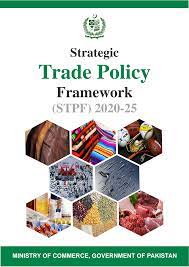Engineering Post Report
Federal Ministry of Commerce has developed the Strategic Trade Policy Framework (STPF) 2020-25 which aims at enhancing export competitiveness of Pakistan through a framework of interventions having an impact across the value chains.
The policy has been formulated after holding extensive consultations both with the private and public sector stakeholders after critically analyzing the deficiencies of the previous trade policies. The STPF intends to make the police implementation unidirectional by correcting the chronic policy fragmentation related issues. Overall, it aims to enhance the ability of Pakistani enterprises’ capacity to produce , distribute and sell products and services as or more efficiently than is being done by the competitors.
Pillars of STPF 2020-25 include i) rendering exports, a national priority and primary driver of economic growth, that is both inclusive and sustainable, and is the main viable source of foreign exchange earnings; ii)enhancement of exports via a collaborative and cohesive national efforts engaging all relevant ministries, departments, government agencies and private sectors so as to ensure policy coherence; introduction of strategic interventions in priority sectors under “Made in Pakistan” initiative, alignment of Trade Policy in tandem with micro-economic framework and other national policies such as Taxation, Revenue, Textiles and Industrial Policy etc.
Following are the major Critical Enablers that would help achieve the objectives of STPF 2020-25: Competitiveness Enhancement through a,, Reduction in Cost of Doing Business, b. Tariff Rationalization ,c. Productivity Enhancement,d,. Enhancement ofQuality of Products,e, Trade Related Investment.
The priority sectors have also been identified after studying the international demand trends, on one hand, and on the other, the capacity and capabilities of different export sectors of Pakistan. The guiding principle was to divert the most efforts and interventions in those sectors that promise greater export opportunities and larger returns.
Following priority sectors have been identified in STPF 2020-25 which have been bifurcated into traditional and developmental categories.
Traditional sectors include Textile and Apparel, Leather, Surgical Instruments, Sports Goods, Capets, Rice and Cutlery.
Developmental sector as such are Engineering Goods inclusive Auto Parts, Pharmaceutical, Marble and Minerals, Processed Food and Beverages, Footwear, Gems and Jewellery, Chemicals, Meat and Poultry, Fruits and Vegetables, See Food , Services Sector with special focus on Information Technology, Transport, Logistics and Tourism.







